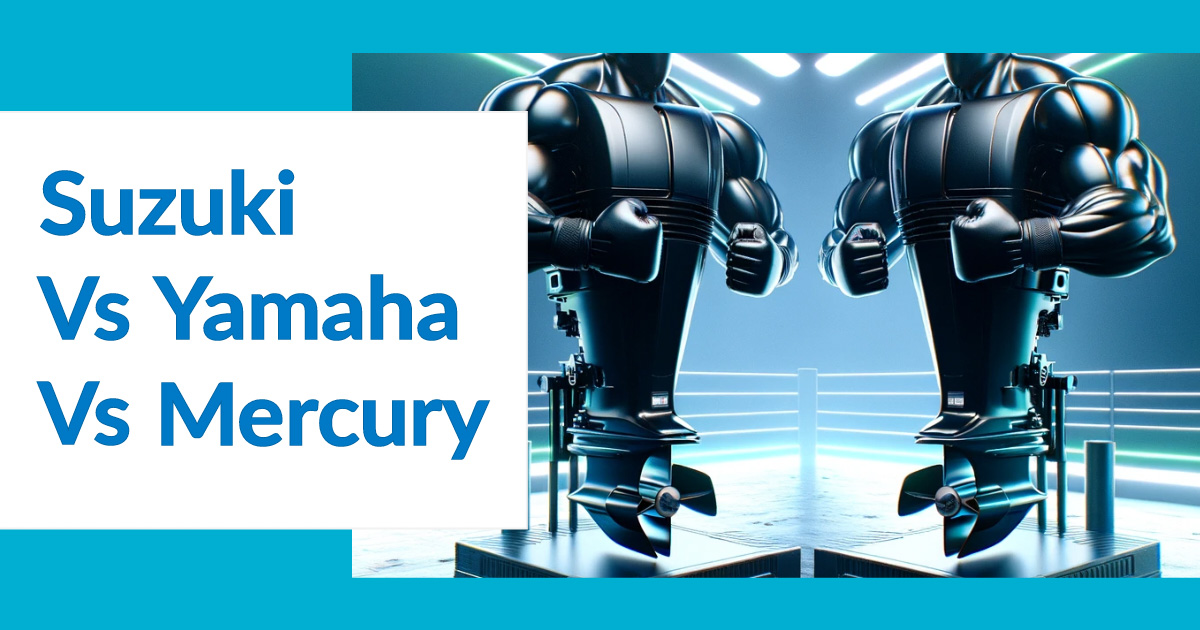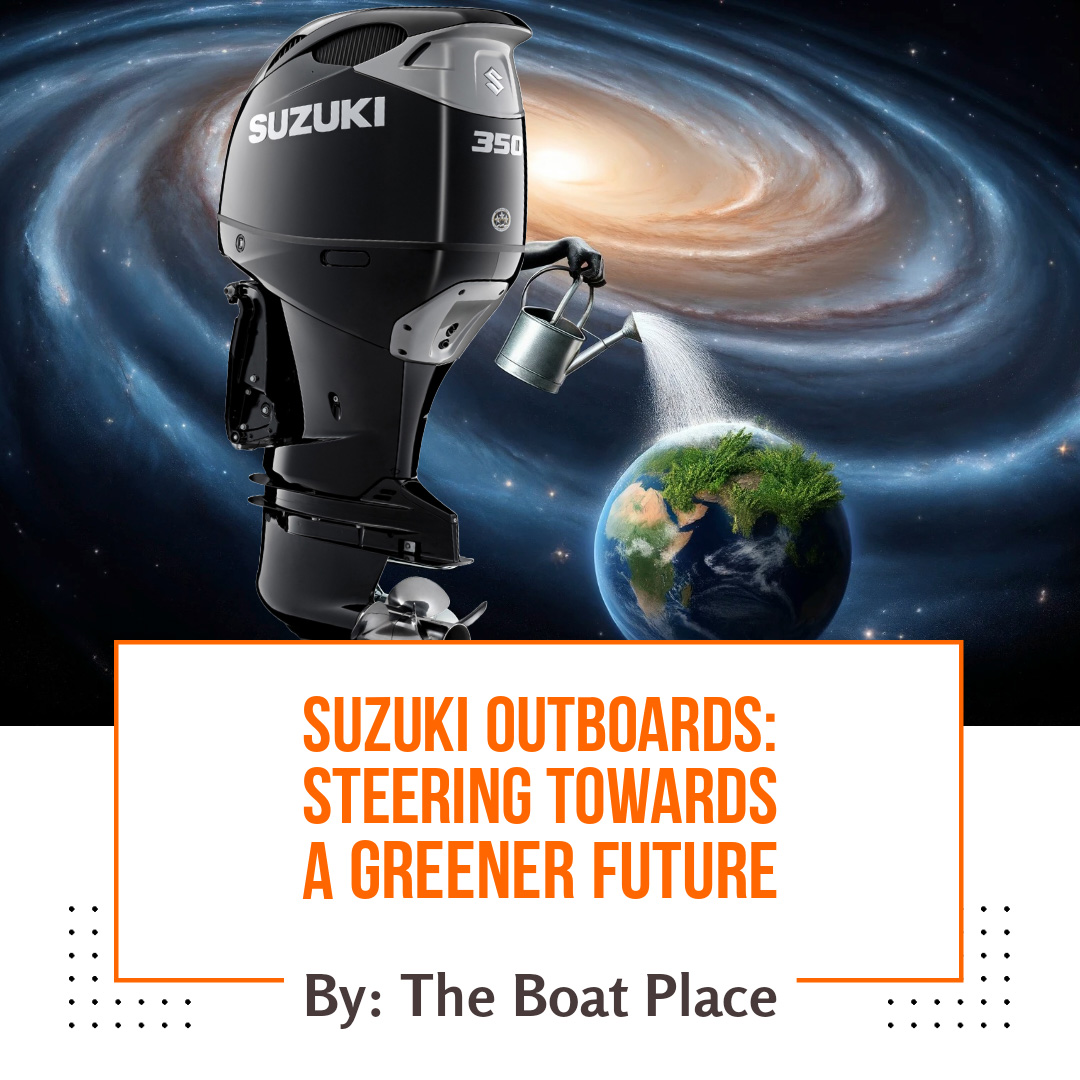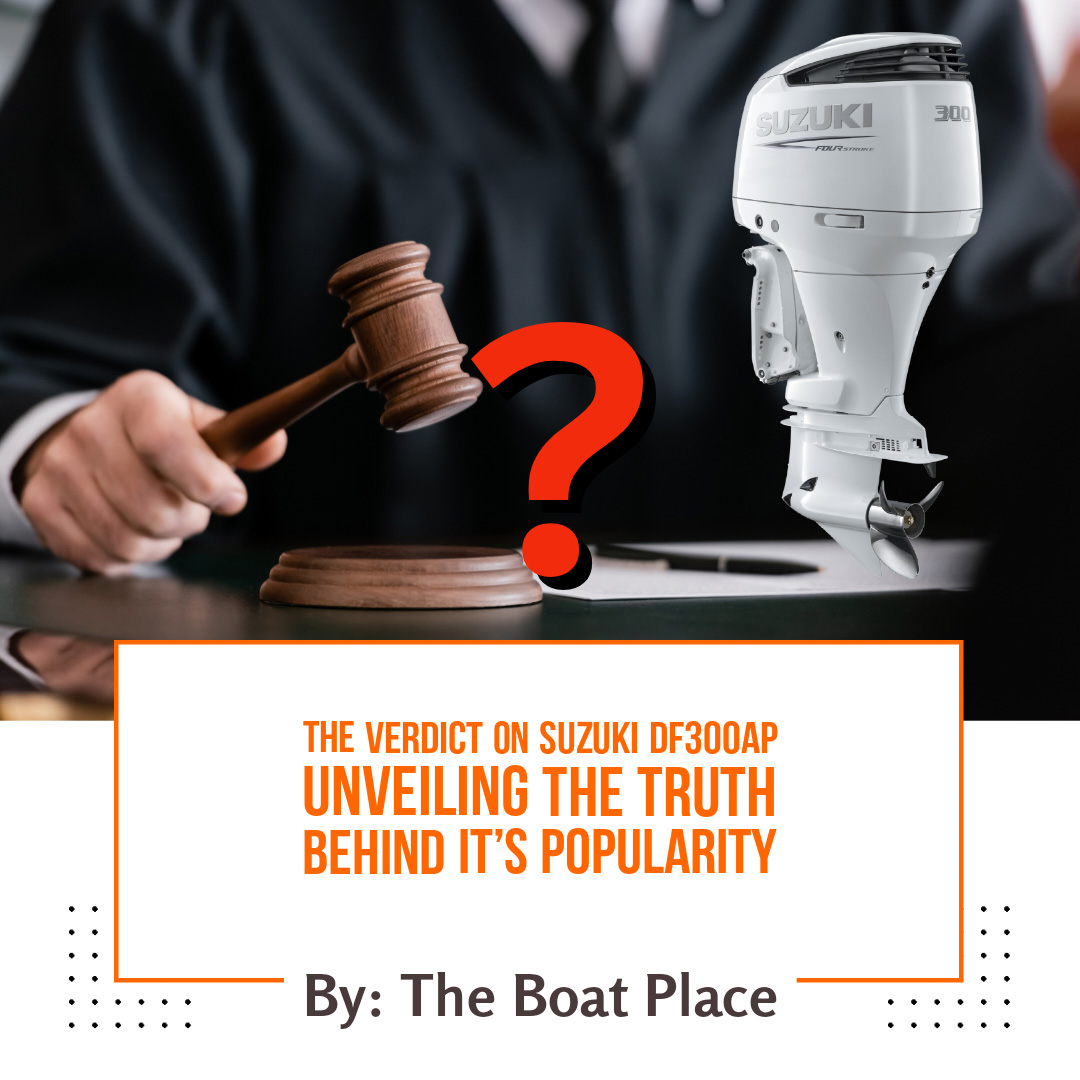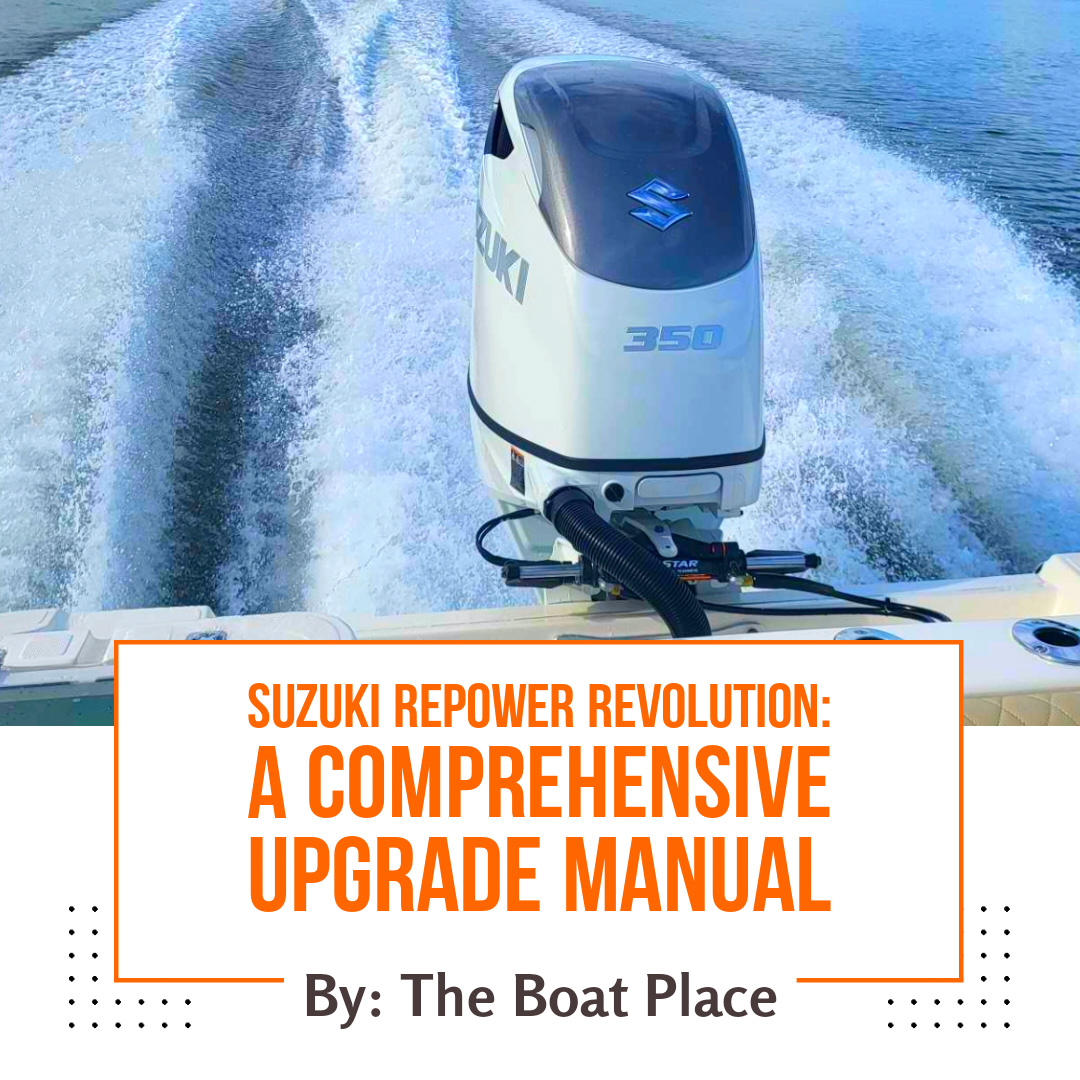
Suzuki vs Yamaha vs Mercury: Outboard Comparison Showdown
Updated: 7/23/24
In the world of outboard motors, the competition is fierce, with brands vying for supremacy in performance, technology, durability, and eco-friendliness. Among the top contenders are Suzuki, Yamaha, and Mercury, each boasting their own arsenal of features. In this post, we dissect the strengths and weaknesses of each brand. From performance to eco-friendly initiatives, join us as we analyze every aspect of the Suzuki vs Yamaha vs Mercury saga.
Round 1: Performance Punches
With performance, Suzuki outboards come out swinging with their heavyweight power and featherweight fuel consumption. A critical component of their arsenal is their lean burn technology—an advanced fuel delivery system that optimizes air-to-fuel ratios for improved efficiency. This technology allows the engine to “lean out” the fuel mixture at cruising speeds, significantly reducing fuel consumption without sacrificing performance.
In comparison, Yamaha introduces their own efficiency technology with their Variable Trolling RPM Switch (VTS), which allows for precise speed adjustments to improve fuel efficiency at lower speeds, particularly useful for trolling. However, this technology does not deliver as broad an impact on fuel economy across all speed ranges as Suzuki’s lean burn technology.
Mercury counters with their SmartCraft system, which integrates several boat and engine functions to improve overall efficiency. While SmartCraft provides enhanced control and diagnostics, its approach to optimizing fuel economy is more reactive and less focused on the specific air-to-fuel ratio adjustments at varying speeds, making it less efficient than Suzuki’s targeted lean burn approach.
While Yamaha and Mercury offer commendable technologies, Suzuki’s lean burn technology not only enhances fuel efficiency but does so significantly—by up to 15% at cruising speeds. With this efficiency consistently applied across a broader range of operating conditions, Suzuki is ahead on points. For now.
Round 2: Technological Knockouts
In technology, Suzuki isn’t just throwing punches; they’re landing them with precision with the Suzuki Precision Control system. It offers boaters smooth and precise throttle and shift operations, eliminating the mechanical friction found in traditional control systems. This results in smoother acceleration and deceleration, giving Suzuki a lead in technological supremacy. In addition, the Dual Prop System doubles the fight power by providing more traction underwater, significantly improving stability and thrust.
Mercury’s Active Trim system, while innovative, has been critiqued for its one-size-fits-all approach to trim settings, which may not suit all boating styles or conditions. Boaters have noted that manual adjustments are sometimes necessary to achieve optimal performance, canceling out the convenience factor.
Yamaha’s Helm Master, praised for its boat handling and docking ease, comes with a steep learning curve and a high price tag, making it less accessible to the average boater. Additionally, some users find the system’s extensive features more complex than necessary for their purposes.
Suzuki’s combination of user-friendly and performance-enhancing features, without the complexities and limitations found in Mercury’s and Yamaha’s offerings, makes them the clear winner in this round.
Round 3: Durability and Dependability Duel
Suzuki’s engines are renowned for their durability and dependability, traits that have solidified their reputation among commercial and recreational boaters alike. The use of high-quality materials and a rigorous testing process ensures Suzuki outboards can withstand the rigors of prolonged use in harsh marine environments. Suzuki’s focus on advanced engineering and innovation is evident in their outboard lineup, featuring technologies such as Lean Burn Control and Precision Control for improved fuel efficiency and performance.
Competitors like Mercury, Yamaha, and Honda also tout their engines’ reliability, but Suzuki sets itself apart with several key advantages. For instance, Suzuki outboards are designed with self-adjusting timing chains, which reduce the need for regular maintenance and prolong engine life, a feature not commonly found in Yamaha and Honda engines. Additionally, Suzuki’s anti-corrosion systems and water detection sensors ensure that their engines remain in optimal condition even in saltwater environments.
A study by BoatTEST.com highlighted that Suzuki outboards typically have longer intervals between scheduled maintenance compared to other brands, including Yamaha and Honda. Yamaha’s engines, while reliable, often require more frequent servicing, which can add to the overall cost of ownership. Similarly, Honda outboards, known for their four-stroke technology and fuel efficiency, still require regular valve adjustments, which Suzuki engines do not.
Moreover, Suzuki’s global network includes over 3,000 dealerships and service centers, providing boaters with unparalleled access to parts and service. In comparison, Yamaha has approximately 2,000 dealerships worldwide, and Honda’s network is even smaller, making Suzuki’s support infrastructure more extensive. This accessibility and ease of upkeep give Suzuki a decisive advantage in this round, ensuring boaters spend more time on the water and less time in the shop. Ultimately, this makes Suzuki outboard ownership less painful and more enjoyable in the long run.
Round 4: Eco-Friendly Face-Off
Stepping into the eco-friendly ring, Suzuki delivers a knockout blow with their comprehensive approach to environmental stewardship. First, their lean burn technology not only enhances fuel efficiency but also reduces emissions, setting a green standard in the outboard motor industry. Secondly, Suzuki’s ongoing Clean Ocean Project, which involves initiatives like beach clean-ups and promoting the use of eco-friendly products among boaters, showcases their commitment to preserving marine environments. Lastly, Suzuki’s investment in developing outboards that run on alternative, less polluting fuels marks them as a forward-thinking champion in eco-friendly boating solutions.
While competitors like Mercury and Yamaha have made strides toward eco-friendliness—Mercury with their Advanced Range Optimization (ARO) technology for improved fuel efficiency and Yamaha introducing more efficient engines with better emissions profiles—these efforts, though commendable, don’t match the extent of Suzuki’s commitment. Also, Suzuki’s lean burn technology covers a wider range of their engine lineup, offering a more consistent reduction in fuel consumption and emissions across the board. Furthermore, Suzuki’s proactive environmental campaigns, such as the Clean Ocean Project, demonstrate a holistic approach to eco-friendliness that extends beyond just the engines themselves.
In this critical round, while Yamaha and Mercury put up a strong fight with technological advancements aimed at reducing environmental impact, Suzuki’s comprehensive eco-strategy—combining advanced fuel-efficient technology, a commitment to cleaner fuels, and active participation in environmental conservation—clearly wins the eco-friendly face-off, demonstrating their commitment to a cleaner & greener planet.
Celebrating Suzuki’s Trailblazing Achievements
Suzuki’s journey in the marine industry is marked by innovation, performance, and an unwavering commitment to quality. This dedication has not gone unnoticed, as evidenced by numerous awards and accolades that underscore Suzuki’s position as a leader in outboard motor technology.
Award-Winning Innovations
Suzuki has consistently been at the forefront of outboard innovation, a fact recognized by prestigious industry awards. For instance, the NMMA Innovation Award was bestowed upon the Suzuki DF300AP for its revolutionary Selective Rotation feature, an industry first that allows the outboard to switch between standard and counter-rotation modes. This accolade is a testament to Suzuki’s commitment to providing versatile solutions to boaters.
Further cementing their reputation for innovation, Suzuki received the IBI Innovation Award for their advancements in outboard motors, highlighting the global recognition of their technological leadership.
Case Studies: Suzuki in Action
To bring Suzuki’s impact to life, here are specific case studies that showcase the real-world benefits of their outboards:
- The Alaskan Fishing Fleet Upgrade: The Kodiak, Alaska fishing fleet’s transition to Suzuki DF250AP outboards marked a significant improvement in operational efficiency. The fleet experienced a 20% increase in fuel efficiency and a notable reduction in maintenance downtime, according to the Kodiak Commercial Fishing News. This transition not only improved the fleet’s profitability but also enhanced the sustainability of their operations in the sensitive Alaskan waters.
- Charter Services Transformation with Suzuki: Cap’n Jack’s Marina in Florida outfitted their charter boats with Suzuki DF200A outboards and reported exceptional reliability and customer satisfaction. As detailed in the Florida Charter Fishing Magazine, the marina saw a decrease in fuel costs by approximately 25% and an increase in repeat business, thanks to the consistent performance and comfort provided by Suzuki engines.
- Recreational Boating Renaissance with Suzuki: Lake Tahoe recreational boating services adopted Suzuki outboards for their rental fleet, citing significant improvements in engine quietness and fuel efficiency. The switch to Suzuki outboards, specifically models like the DF175A, provided a quieter, more enjoyable boating experience for customers while reducing fuel costs for the company. This case study underscores Suzuki’s appeal not just for its performance but also for enhancing the overall boating experience for recreational users.
Champions Corner: The Boat Place
In the champion corner stands The Boat Place, with over 30 years of experience in the marine industry. Our tenure has seen us work with a variety of outboard brands, but it was Suzuki’s unparalleled performance, innovation, and commitment to sustainability that made them the clear winner in our eyes. Our dedication to providing boaters with the best outboard motors is backed by our extensive experience and a deep understanding of what makes an outboard stand out & be the best. At The Boat Place, we offer the lowest Suzuki repower prices and a fleet of Suzuki outboard boat motors that reflect our belief in the brand’s superior quality and value.
Give us a call or -> Contact Us<- today for the best prices and marine services in Fort Myers
239-415-6400
Thanks For Coming to Our Tide Talk,
~The Boat Place
Suggested & Related Readings:

From Lean Burn Control to microplastics collection, learn all about Suzuki Marine’s comprehensive & holistic approach to sustainability and cleaner oceans

We analyzed 250+ user reviews to make a final verdict: Find out why the Suzuki DF300AP is so popular & how it compares to other similar 300HP offerings



